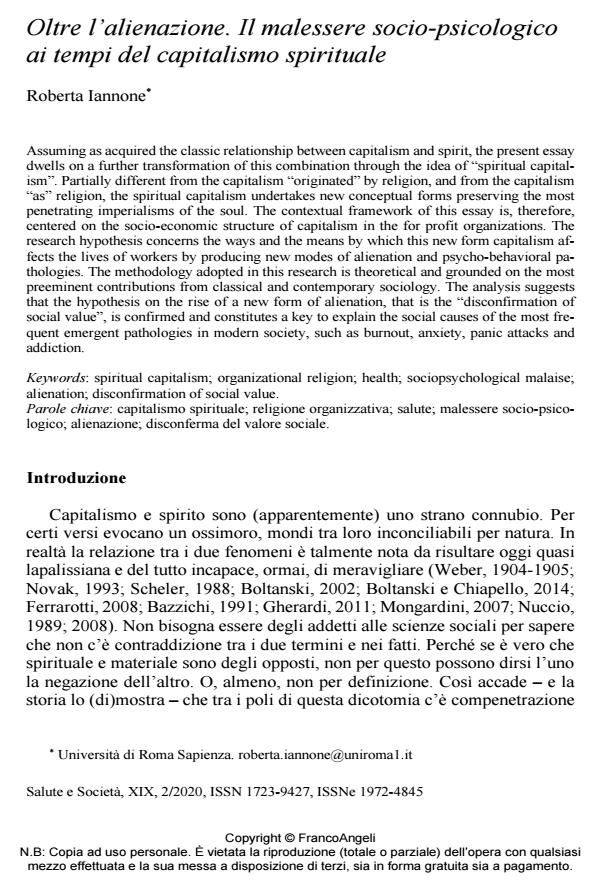Oltre l’alienazione. Il malessere socio-psicologico ai tempi del capitalismo spirituale
Journal title SALUTE E SOCIETÀ
Author/s Roberta Iannone
Publishing Year 2020 Issue 2020/2
Language Italian Pages 16 P. 164-169 File size 173 KB
DOI 10.3280/SES2020-002012
DOI is like a bar code for intellectual property: to have more infomation
click here
Below, you can see the article first page
If you want to buy this article in PDF format, you can do it, following the instructions to buy download credits

FrancoAngeli is member of Publishers International Linking Association, Inc (PILA), a not-for-profit association which run the CrossRef service enabling links to and from online scholarly content.
Assuming as acquired the classic relationship between capitalism and spirit, the present essaydwells on a further transformation of this combination through the idea of "spiritual capitalism".Partially different from the capitalism "originated" by religion, and from the capitalism as religion, the spiritual capitalism undertakes new conceptual forms preserving the mostpenetrating imperialisms of the soul. The contextual framework of this essay is, therefore,centered on the socio-economic structure of capitalism in the for profit organizations. Theresearch hypothesis concerns the ways and the means by which this new form capitalism affectsthe lives of workers by producing new modes of alienation and psycho-behavioral pathologies.The methodology adopted in this research is theoretical and grounded on the mostpreeminent contributions from classical and contemporary sociology. The analysis suggeststhat the hypothesis on the rise of a new form of alienation, that is the "disconfirmation ofsocial value", is confirmed and constitutes a key to explain the social causes of the most frequentemergent pathologies in modern society, such as burnout, anxiety, panic attacks andaddiction.
Keywords: Spiritual capitalism; organizational religion; health; sociopsychological malaise;alienation; disconfirmation of social value.
Roberta Iannone, Oltre l’alienazione. Il malessere socio-psicologico ai tempi del capitalismo spirituale in "SALUTE E SOCIETÀ" 2/2020, pp 164-169, DOI: 10.3280/SES2020-002012